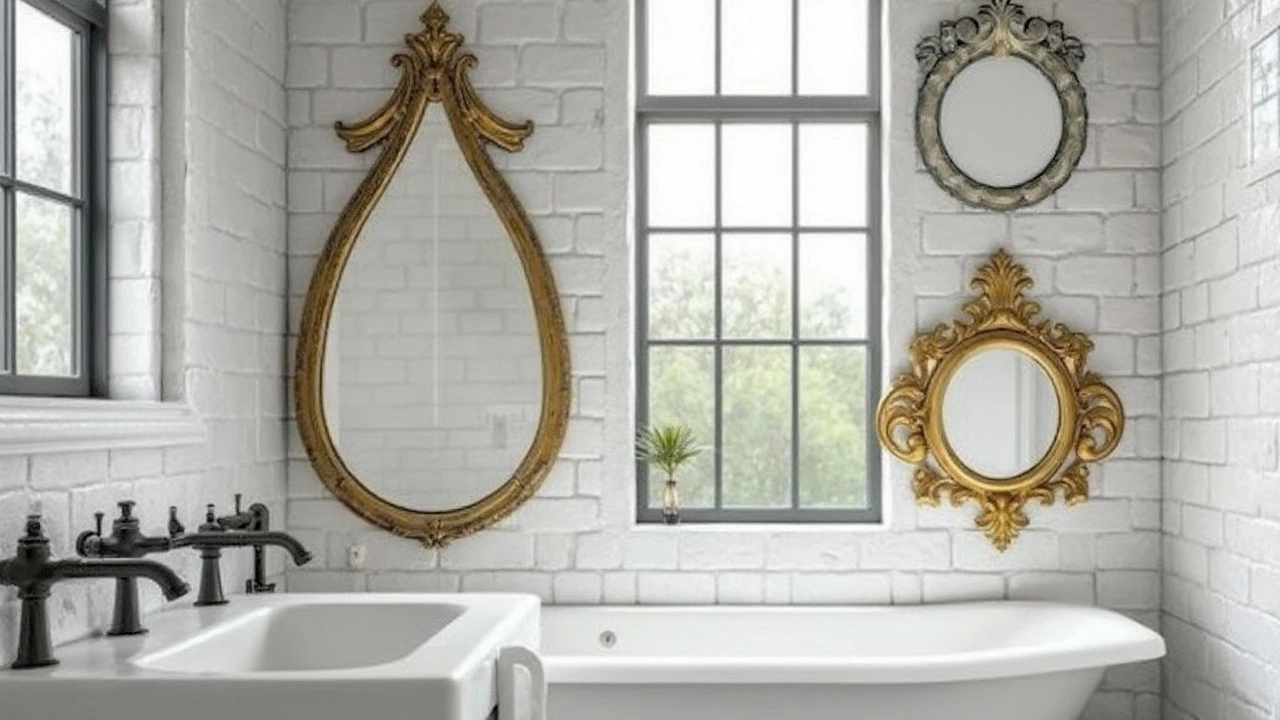Mirror Cost: What You Need to Know Before You Buy
If you’ve ever walked into a home store and stared at the price tag on a mirror, you know the numbers can jump from cheap to crazy fast. The good news? You don’t have to guess. In this guide we break down the main factors that set the price, show you where to save, and help you pick a mirror that looks great without breaking the bank.
What Affects Mirror Prices?
First up, material. Most mirrors start with a plain glass sheet backed by a reflective coating. That’s the cheapest option and works fine for a bathroom or hallway. If the glass is tempered, frameless, or has a special coating (like anti‑fog or UV protection), expect a higher price.
Second, size and shape. A small round vanity mirror might cost £20‑£30, while a floor‑to‑ceiling wall mirror can easily top £200. Larger pieces need more glass, more backing, and stronger framing, all of which add up.
Third, framing. Bare‑bone acrylic frames are budget‑friendly. Wooden frames, especially reclaimed or custom‑carved designs, can add £50‑£150. Metal frames sit somewhere in the middle, but also bring durability.
Fourth, style and finish. A sleek, modern mirror with a thin metal edge looks different from a vintage, ornate frame. Designer looks often carry a premium because of the craftsmanship and brand name.
Finally, where you buy it. Big‑box retailers often have lower prices on standard sizes, while specialty shops charge more for custom cuts or unique designs. Online marketplaces can offer good deals, but watch out for shipping costs on large items.
Tips to Get the Best Value
Know your budget before you walk in. Decide if you need a simple reflective surface or a decorative piece that doubles as wall art. This will narrow your search and stop you from splurging on features you don’t need.
Measure twice. A mirror that’s a few inches too big or small can cause you to spend extra on trimming or returning the item. Have a tape measure handy and write down the exact height and width you want.
Consider DIY framing. You can buy a plain mirrored panel and add your own frame using inexpensive molding from a hardware store. It’s a quick way to get a custom look for less.
Shop sales and clearance sections. Many retailers discount seasonal stock, especially around holidays. If you’re flexible on style, you can snag a high‑quality mirror for a fraction of the regular price.
Read reviews. Other buyers often note if a mirror’s backing starts to peel, if the frame warps, or if the shipping was damaged. Choose products with solid feedback to avoid hidden costs.
Don’t forget installation. Heavy mirrors need proper mounting hardware. If you’re not comfortable drilling into walls, factor in the cost of a handyman – usually £30‑£50 per hour. Some retailers offer free installation with larger purchases, which can be a nice saving.
In short, mirror cost comes down to material, size, frame, style, and where you buy. By knowing what matters most to you and following these practical tips, you’ll end up with a mirror that looks great and fits your wallet.
Trying to figure out what counts as a 'good quality' mirror and how much to budget for? This article breaks down the real prices, from bathroom staples to fancy statement pieces. You'll get clear tips on choosing the right mirror for both your needs and wallet. Plus, learn why price tags can vary so much and what small details actually make a big difference. Perfect for anyone shopping for a new mirror or just curious about what you're really paying for.
Jun, 15 2025
